These “faces” include witnesses, in other words people who have been directly affected by the death penalty, such as former death row prisoners and their families. Their testimonies shed light on the failings of the judicial system, the inhumanity of prison conditions, the death row phenomenon, the execution of innocent individuals, psychological and physical torture, and all the forms of injustice inherent in capital punishment.
Other actors are also essential to accompany and support the work of witnesses. They include, of course, lawyers and judges who work on the front line, at the heart of the judicial system, directly dealing with those facing the death penalty. But they are not alone in having a strong influence on the fight for abolition of the death penalty. Journalists, for example, also have a major role to play in raising public awareness on the death penalty, as do national human rights institutions (NHRIs), whose work, combined with that of civil society actors, is also essential to achieving changes in policies on the death penalty. Finally, mobilising new non-conventional actors, such as businesses, can also have an influence and advance the fight to abolish capital punishment.
Former death row prisoners: key witnesses to the death penalty
As in earlier editions of the World Congress, a large number of witnesses attended and took part in the Berlin Congress to give a voice to those affected by the death penalty and to share with participants their experiences and the effects of capital punishment on their lives.
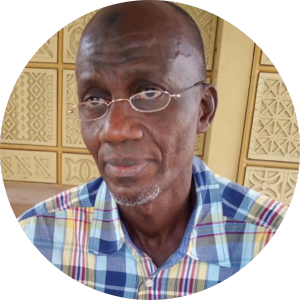
Yaovi Azonhito – Former death row prisoner, Member of ACAT Benin – Benin
Yaovi Azonhito was sentenced to death in 1997 and spent 25 years on death row before being granted presidential clemency. Since then, he has testified about the atrocious conditions of detention of people sentenced to death. He is a member of ACAT Benin.
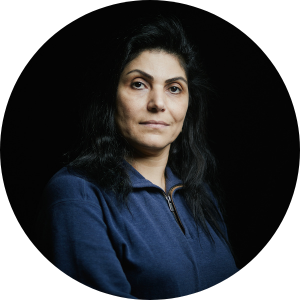
Antoinette Chahine – Former death row prisoner, Anti-death penalty and anti-torture activist – Lebanon
Antoinette Chahine was accused of participating in the murder of a priest in 1994 and was arrested for a crime of which her brother, a member of the Lebanese Forces, in exile at the time of the events, was accused by the state of Lebanon. She was sentenced to death in 1997 on the basis of two testimonies obtained under torture, which were later withdrawn. After being tortured and imprisoned for five years, she was released in 1999 as a result of the mobilisation of international civil society and her lawyer. Antoinette has participated in many editions of the World Congress Against the Death Penalty and campaigns against the death penalty and torture, in particular by meeting with students and young prisoners.
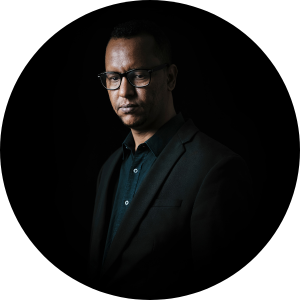
Mohamed Cheikh Mkhaitir – Former death row prisoner – Mauritania
Mohamed Cheikh Ould Mkhaitir is a Mauritanian blogger sentenced to death for blasphemy and detained for five and a half years for criticising the use of Islam to justify caste discrimination in Mauritania. Mohamed is among the many Mauritanians sentenced or persecuted for denouncing these forms of discrimination, as well as the legacy of slavery in his country. In May 2018 and June 2019, UN human rights experts called for his release and expressed concern about his deteriorating health. Mohamed was finally released in 2019 and found refuge in France.
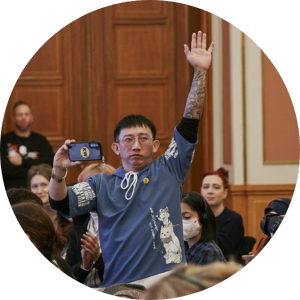
Hsieh Chih-hung – Former death row prisoner – Taiwan
In 2000, Hsieh Chih-hung was accused of being the accomplice of Kuo Chun-wei in a double murder and rape. He was first convicted in October 2001 and spent nineteen years on death row, claiming that his confession had been extracted under torture. Seven new trials found Hsieh and Kuo guilty and confirmed their death sentences, before Taiwan’s High Court overturned the decision. Hsieh Chih-hung’s case is one of many in recent years where death row prisoners have been convicted and sentenced to death on flimsy evidence, before having their sentences overturned.
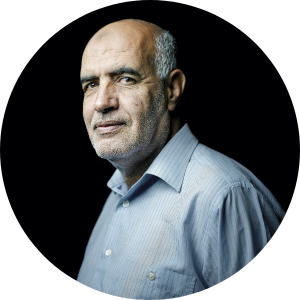
Ahmed Haou, Former death row prisoner, Anti-death penalty activist – Morocco
Ahmed Haou, then a student, was sentenced to death in 1984 for undermining the state’s internal security after holding up placards against the regime during a peaceful demonstration. His sentence was later commuted to life imprisonment before he was finally pardoned in 1999, following pressure from international organisations. Ahmed’s only crime was to have expressed his opposition to the regime, to have exercised his right to freedom of expression. Ahmed’s story illustrates the use of the death penalty to repress dissent, in violation of international law. In 2021, he published a testimonial book, Rescapé de la morgue, recounting his ten years on death row.
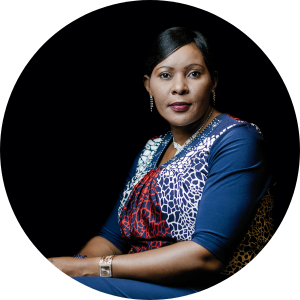
Susan Kigula – Former death row prisoner, Founder of the Susan Kigula African Child Foundation – Uganda
Susan Kigula was arrested in 2000 and sentenced to death in 2002 for the murder of her husband, despite always maintaining her innocence. During her fifteen years in prison, she founded a choir of death row prisoners and obtained a law degree from the University of London. In 2009, following her appeal, Uganda’s Constitutional Court ruled that the mandatory death penalty, the execution of a death row prisoner more than three years after his or her final sentence, and execution by hanging were contrary to the Constitution. This landmark ruling reduced the number of death sentences and the number of people on death row. Since her release in 2016, Susan Kigula founded the Susan Kigula African Child Foundation to help disadvantaged children.
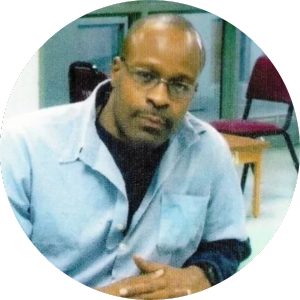
Keith Lamar – Death row prisoner in Ohio – United States
Keith LaMar was sentenced to death in 1993 following a riot in the prison where he was incarcerated, which resulted in several deaths. Identified by other prisoners as the instigator of the rebellion, despite numerous contradictory accounts, he received the death sentence and has been on death row ever since. During his years in prison, Keith has become an avid reader, writing regularly and in 2014 published Condemned: The Whole Story. For the past ten years, the association Justice for Keith LaMar has been working to help him tell his story. Catalan pianist Albert Marquès heard about Keith for the first time in 2020. Over the following months, the two men struck up a friendship around their shared passion for jazz and organised a support concert featuring songs chosen by Keith, who also spoke between performances via pre-recorded videos. In the wake of the concert’s success, Keith and Albert took the experience further, recording their first joint album, Freedom First, in 2022. Accompanying Keith’s lyrics with jazz rhythms, Albert offers him a platform to express emotions and reflections matured by thirty years spent on death row, as well as the writing skills he developed during that time.
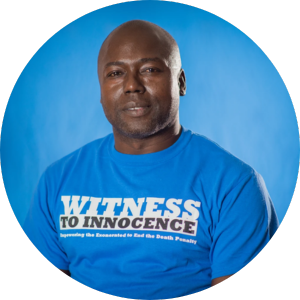
Herman Lindsey – Former death row prisoner, Executive Director of Witness to Innocence – United States
Herman Lindsey was sentenced to death for the robbery and murder of a pawnbroker in Florida in 1994. In 2009, the Florida Supreme Court ruled by a unanimous vote that there was insufficient evidence against him and that he had not received a fair trial. Herman was exonerated after spending three years on death row. Today, he works with at-risk youth and is involved in criminal justice reform as Director of Witness to Innocence, Board Member of Floridians for Alternatives to the Death Penalty and Ambassador for Represent Justice. He hosts a programme called “Cruel Justice” where he interviews guests on topics related to criminal justice reform and lectures in the United States and abroad.
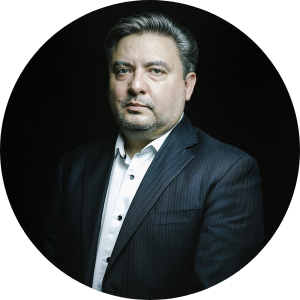
Joaquin Martinez – Former death row prisoner, member of Witness to Innocence – United States
Joaquin Martinez was acquitted after spending four years in prison for a double murder he did not commit. At his retrial, key witnesses changed their stories and withdrew their testimonies, and all admitted that detectives had corrupted them. In addition, a key piece of evidence – an audio cassette of allegedly incriminating statements – was ruled inadmissible. The tape was so inaudible that the first jury had been provided with a transcript, altered by the victim’s father, then in charge of the Sheriff’s Office evidence room. At the retrial, Joaquin was acquitted of all charges. His case attracted international attention, including from the Pope, the King of Spain and the Spanish Prime Minister at the time. Joaquin now lives in Spain and campaigns for the abolition of the death penalty worldwide.
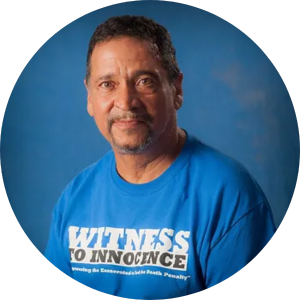
Juan Melendez – Former death row prisoner, member of Witness to Innocence – United States
Juan Roberto Meléndez-Colón spent seventeen years, eight months and one day on Florida’s death row for a crime he did not commit, before being exonerated in 2002. Juan, who could not afford a lawyer, was sentenced to death in a week, even though there was no physical evidence against him. Had it not been for the chance discovery of a transcript of the recorded confession of the person responsible for the crime, sixteen years after Juan Roberto was sentenced to death, he would almost certainly have been executed. Since his release, Juan Roberto has shared his story with tens of thousands of people in the United States, Canada and Europe. His story is featured in the internationally acclaimed documentary, Juan Meléndez 6446.

Debra Milke – Former death row prisoner, member of Witness to Innocence – United States
Debra Milke spent twenty-two years on death row for a crime she did not commit. In 1989, her world collapsed when her 4-year-old son was found dead after going to the shopping centre with a friend to see Father Christmas. She was arrested, interrogated, charged with the murder of her own child and sentenced to death on the basis of false evidence and biased justice. Debra fought for her freedom for over twenty years, studying law, reading legal documents and looking for a new lawyer. Her sentence was finally overturned in 2013 by the Federal 9th Circuit Court of Appeals. Despite this victory, the pain of losing her son persists. She continues to fight against the death penalty and campaigns to ensure that no one is ever subjected to such injustice.
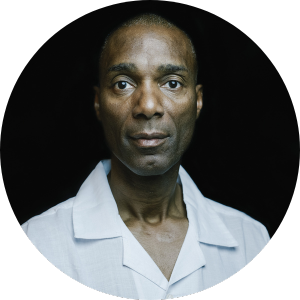
Ndume Olatushani – Former death row prisoner – United States
Ndume Olatushani, sentenced to death in Tennessee in 1985 for the murder of a grocer during a robbery, spent twenty-eight years in prison, including twenty on death row, in a cell where he could not stretch out his arms, for 23 hours a day. When he was allowed out, he had chains on his feet, “tied up like an imaginary monster”, in his words. Art helped him to survive, gave him hope, a reason to stand up and not give up. After twenty years of fighting to prove his innocence, the Tennessee authorities offered him an Alford plea, allowing the convicted man to waive his official acquittal in exchange for his immediate release. Ndume accepted but lost his right to vote and his right to compensation for the twenty-eight years he spent in detention while innocent.
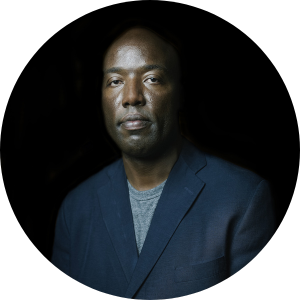
Pete Ouko – Former death row prisoner, Founder and Executive Director of Crime Si Poa – Kenya
Pete Ouko, the father of two young children, was sentenced to death for the murder of his wife in 2001. He spent almost eighteen years on death row, testifying about the difficulties of surviving while awaiting execution. He was pardoned in 2007 and released in 2016. Since then, he has been involved in defending the rights of prisoners, founding and running the association Youth Safety Awareness Initiative. Pete is also fighting to uncover the truth about his wife’s murder so that he and his children can move on. In 2007, he set up Crime Si Poa, an organisation that aims to support and offer vocational and civic training to young Kenyans to prevent them from committing crimes or re-offending. The organisation also offers a resource centre for former prisoners where they can start an activity and begin their lives again.
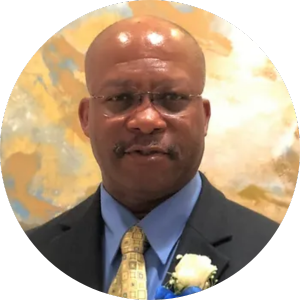
Ron Wright – Former death row prisoner, member of Witness to Innocence – United States
Ralph “Ron” Wright Jr was an Air Force sergeant and Orange County sheriff’s deputy who wrongfully spent three years in custody. Ron was charged with the murder of a woman and her young son in 2007. Despite the absence of physical evidence, weapon or testimony incriminating Ron, he was convicted based on potential motive and opportunity. In 2017, the Florida Supreme Court ruled that all the evidence against him was purely circumstantial. He was acquitted of murder and became the 27th person to be exonerated from the death penalty in Florida. Ron now lives in Florida and fights for the abolition of the death penalty.
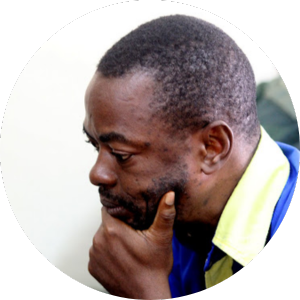
Firmin Yangombi, Former death row prisoner, Lawyer at the International Criminal Court and President of the NGO Paix sur terre – Democratic Republic of Congo
Firmin Yangambi, a former political prisoner, is a lawyer and human rights activist. In 2010, he was sentenced to death for “illegal possession of weapons of war and attempting to organise an insurrectional movement”, then to twenty years in prison on appeal for “forming an insurrectional movement”. Firmin has always contested these charges. He was finally granted a presidential pardon in March 2019, after ten years in prison, but is still the victim of judicial harassment. His election as President of the Tshopo Bar Association was cancelled on the grounds of ineligibility following a criminal conviction. Today, Firmin says he fears for his life because of the pressure he is facing, but he continues to fight for justice and human rights.
Death row prisoners and their lawyers: a unique partnership
The relationship between a lawyer and a client is always unique and complex. In death penalty cases, this relationship is particularly important because it can save a life. But it is precisely in capital cases that developing and maintaining a good relationship can be difficult, if not impossible. Many governments keep people on death row isolated from other prisoners and their families, which means that their lawyer is sometimes their only link with the outside world. Death row prisoners are also often subjected to psychological torture and held in extremely difficult conditions. In these circumstances, establishing a relationship of trust can be a real challenge, requiring good communication, a high level of professionalism, a great deal of respect and, above all, humanity.
The singular intimacy of this partnership was at the heart of the last evening event organised by ECPM at the Berlin Congress, sponsored by the Paris Bar. Following introductory remarks by ECPM’s Board Members, Richard Sedillot and Edmond-Claude Frety, and by the President of the Paris Bar, all three of whom are lawyers, the programme focused on testimonies from “couples” formed by lawyers and their clients (or their clients’ family members). The three groups of speakers, from DRC, Malaysia and the United States, and Fatima M’Baye’s closing speech, highlighted the particularities of the relationship between death row prisoners and their lawyers, the challenges faced but also the courage, hope and friendship fostered by this relationship. Musical interludes performed by Diana Ezerex and The Mondëna Quartet added to this intense and moving event.
Film screening: The State of Texas vs. Melissa
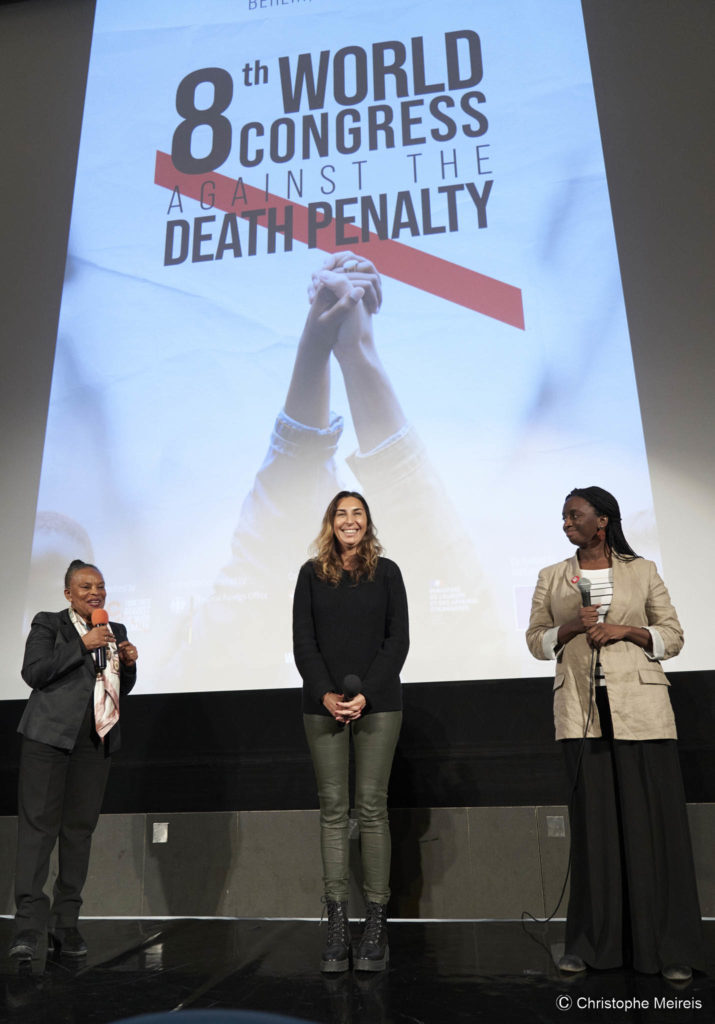
A screening of The State of Texas Vs Melissa, a documentary filmed in 2020 by Sabrina Van Tassel, took place on 16 November 2022 at the Babylon Cinema in Berlin. The film follows the case of Melissa Lucio, who was the first Hispanic woman to be sentenced to death in Texas. It was selected for the Tribeca Film Festival in 2020 and won the Best Documentary Award at the Raindance Film Festival.
Melissa Lucio has been on death row since 2007, after being convicted of the abuse and murder of one of her children. On 25 April 2022, Melissa Lucio was granted a stay of execution by the Texas Court of Criminal Appeals. She remains on death row but no longer faces imminent execution. The screening was followed by a question and answer session with John Lucio, Melissa’s son, Sabrina Van Tassel, the director, Christiane Taubira, former French Minister of Justice, and Aminata Niakaté, ECPM President. A large audience turned out that evening to watch this deeply moving film, which reveals the racial and social discrimination in the Texas criminal justice system and the use of the death penalty for political ends.
Here’s to you: the abolitionist anthem
Art is a powerful way to voice abolitionism: it sets the tone for the anthem “Here’s to you,” which marked the official opening of the Congress in the packed auditorium of the Pierre Boulez Saal.
This song, composed by Joan Baez and Ennio Moricone in 1971 pays tribute to the two Italian anarchists Nicola Sacco and Bartolomeo Vanzetti, unjustly sentenced to death and executed in 1927 and constitutes a true anthem for the defense of civil rights. The 8th World Congress brought it back into focus: with an original interpretation by 66 musicians from around the world, gathered in a ‘Symphony without Borders’ by the composer Valentin Vander, all played and sang to honor the memory of victims of the death penalty worldwide. A refrain loaded with memory and a call to action that will continue to resonate and unite the abolitionist movement worldwide.